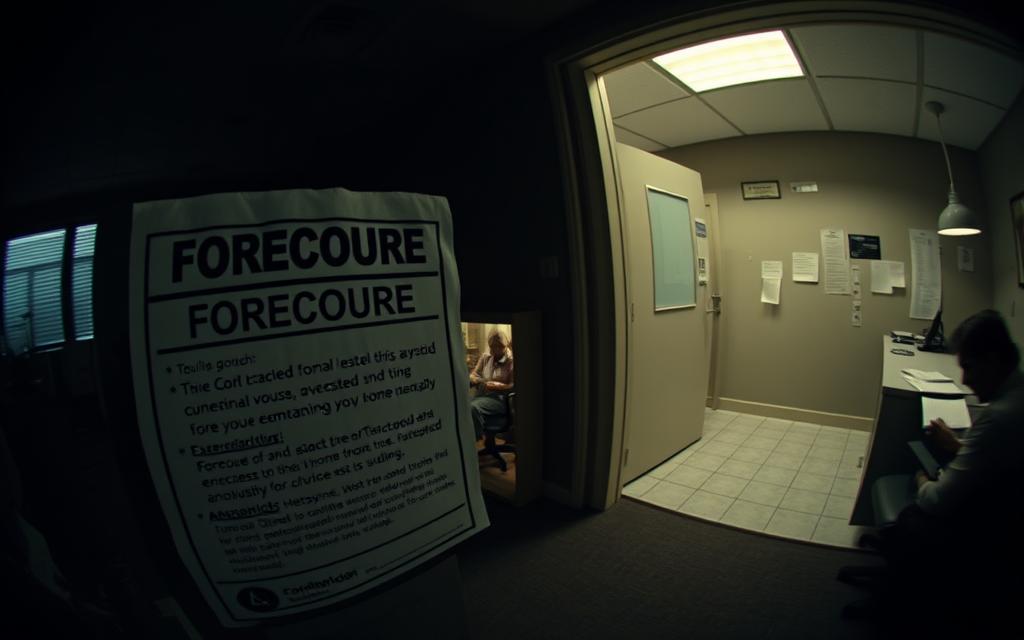
Mortgages vs Guarantee Trusts: Which is Better and Why?
At GAP Investments, we understand the unique needs of foreign investors looking to invest in Costa Rica’s property market. We provide tailored financing options, prioritizing safety and risk management to ensure a secure investment environment.
A mortgage is a financial arrangement that allows a person to purchase property using a loan from a financial institution, with the property serving as collateral. In contrast, a trust is a legal arrangement where a settlor transfers assets to a trustee, who manages them for the benefit of the settlor or a third party.
Understanding the differences between mortgages and guarantee trusts is crucial for investors to make informed decisions about their financing options in Costa Rica. We will explore how each financing mechanism works within the Costa Rican legal framework, examining the security aspects, foreclosure processes, and risk levels associated with both.
Understanding Financing Options in Costa Rica
Navigating the Costa Rican real estate market can be complex, especially when it comes to financing options. With years of expertise, we’ve helped many clients succeed in this vibrant market.
The Costa Rican Real Estate Market for Foreign Investors
Costa Rica’s real estate market has become increasingly attractive to foreign investors and expats seeking property investments. The country’s unique legal framework governs real estate transactions, differing significantly from North American and European systems. Our loan options range from $50,000 to over $3,000,000 USD, with competitive interest rates of 12% to 18% annually, designed specifically for the foreign investor market.

Key Financing Challenges for Expats and Foreign Investors
Foreign investors face specific financing challenges when purchasing property in Costa Rica, including limited access to local bank financing and currency exchange considerations. We offer specialized knowledge in navigating these challenges. The choice between a mortgage and a trust depends on the type of property, financial situation, and specific needs. Key considerations include the title to the property, sale terms, and payments schedules.
- Mortgages are ideal for individual buyers or families purchasing a property for commercial or residential use.
- Trusts are ideal for developers, investors, and individuals seeking to protect their assets legally and securely.
What is a Mortgage in Costa Rica?
Understanding mortgages is crucial for anyone looking to invest in Costa Rican real estate. A mortgage allows a buyer to receive an amount of money from a lender in exchange for repaying that amount, plus interest.
How Mortgages Work in Costa Rica
In Costa Rica, mortgages function within a legal framework that protects both lenders and borrowers. The process involves a lender providing a loan to a borrower, with the property serving as collateral.
Legal Framework and Requirements
The legal framework governing mortgages in Costa Rica includes laws that dictate the requirements for obtaining a mortgage, such as documentation and credit history. Foreign investors may face additional requirements.
Typical Terms and Conditions
Typical terms and conditions of Costa Rican mortgages include higher interest rates compared to North America, specific loan-to-value ratios, and varying repayment periods. GAP Investments offers private loans with competitive interest rates starting at 12% based on LTV ratios.
What is a Guarantee Trust (Fideicomiso)?
In Costa Rica, a guarantee trust, or fideicomiso, is a unique financial instrument that’s gaining popularity among foreign investors. A guarantee trust is a legal arrangement where a third party, known as the trustee, holds control and management of a property until certain conditions are met.
This financial tool is particularly useful in real estate transactions, providing a secure mechanism for both lenders and borrowers. The trust deed outlines the terms and conditions of the agreement, including the roles and responsibilities of the settlor, trustee, and beneficiary.
Structure and Legal Basis of Guarantee Trusts
The structure of a guarantee trust in Costa Rica is governed by specific laws that dictate how these trusts are established and managed. The legal basis of guarantee trusts provides a framework for their operation, ensuring that they are used in a manner that is fair and transparent to all parties involved.
Under Costa Rican law, guarantee trusts are recognized as independent entities, which means they are not directly tied to the financial situations of the settlor or the beneficiary. This independence is a key advantage, as it provides an additional layer of security for the assets held in trust.
Parties Involved: Settlor, Trustee, and Beneficiary
In a guarantee trust arrangement, there are three primary parties involved: the settlor, the trustee, and the beneficiary. The settlor is typically the borrower who initiates the trust by transferring the property into it.
The trustee is an independent third party responsible for managing the trust according to the terms of the trust deed. The beneficiary, usually the lender, is the party that benefits from the trust arrangement, typically by having a secured interest in the property.
Common Applications in Costa Rica
Guarantee trusts are commonly used in Costa Rica for various real estate transactions, including private lending arrangements and development projects. They offer a flexible and secure way to facilitate property transactions, especially for foreign investors who may not be familiar with the local market.
By providing a clear and legally binding framework for securing property, guarantee trusts have become an essential tool in Costa Rica’s real estate market.
Mortgages or Guarantee Trusts: Which is Better and Why
Understanding the differences between mortgages and guarantee trusts is crucial for making informed investment decisions in Costa Rica. Both financial instruments are used to secure real estate loans, but they operate under different legal structures and processes. This section will compare and contrast these two options.
Similarities Between Mortgages and Guarantee Trusts
Mortgages and guarantee trusts share some fundamental similarities. Both are legal documents used to secure a loan against a property, and both allow for foreclosure if the borrower defaults. They are also both public records that must be filed with the relevant authorities.
Key Differences in Structure and Function
A key difference lies in the parties involved and how the title is held. In a mortgage, the borrower holds the title, whereas in a guarantee trust, a trustee holds the legal title. This difference significantly affects the foreclosure process, with mortgages typically involving judicial foreclosure and guarantee trusts allowing for non-judicial foreclosure. For more detailed information on the differences, you can visit this resource.
Risk Assessment for Investors and Lenders
Both mortgages and guarantee trusts carry risks for investors and lenders. The risk of default and subsequent foreclosure is a significant concern. However, guarantee trusts may offer lenders a faster and more cost-effective foreclosure process. Investors should carefully assess these risks when choosing between the two options.
Foreclosure and Default Processes Compared
Foreclosure procedures differ substantially between mortgages and guarantee trusts, affecting the risk assessment for lenders and investors in Costa Rica. The distinction between these two financial instruments is crucial for understanding the potential risks and consequences of default.
Judicial Foreclosure with Mortgages
The foreclosure process for mortgages in Costa Rica is judicial, meaning it involves court proceedings. When a borrower defaults, the lender must file a lawsuit to initiate foreclosure. This process can be lengthy, often taking several years due to the mandatory court hearings and potential appeals. For more information on mortgages, you can visit our detailed guide on mortgages vs guarantee trusts.
Non-Judicial Process with Guarantee Trusts
In contrast, guarantee trusts allow for a non-judicial foreclosure process. This means that when a borrower defaults, the trustee can initiate the sale of the property without court involvement, thanks to the power of sale provision included in the trust agreement. This process is significantly faster, typically taking only a few months.

Timeline and Cost Implications
The timeline and cost implications of these foreclosure processes vary significantly. For mortgages, the judicial foreclosure process can take 1-3 years and involves substantial legal fees and court costs. In contrast, the non-judicial foreclosure process for guarantee trusts is much quicker, usually taking 2-3 months, and is generally less expensive. This efficiency makes guarantee trusts an attractive option for lenders and investors seeking to minimize risk.
- The judicial foreclosure process for mortgages involves court proceedings and can take 1-3 years.
- Non-judicial foreclosure with guarantee trusts is faster, typically taking 2-3 months.
- The cost implications of judicial foreclosure include higher legal fees and court costs.
Choosing the Right Option for Your Investment Goals
The choice between mortgages and guarantee trusts for investment purposes in Costa Rica hinges on several key factors, including financial objectives and risk management. Investors must consider their specific needs and circumstances to decide which financing option is more suitable.
Best Scenarios for Using Mortgages
Mortgages are ideal for individual buyers or families purchasing property for commercial or residential use. They are particularly beneficial for those with stable income sources and good credit history, as they offer long-term financing (15-30 years) with manageable monthly payments.
When Guarantee Trusts Offer Better Protection
Guarantee trusts are more suitable for developers, investors, and individuals seeking to protect their assets legally and securely. They provide legal security, flexibility, and confidentiality, making them ideal for large estates or development projects.
Tax and Legal Considerations
Both mortgages and guarantee trusts have distinct tax and legal implications. For instance, documentary stamp taxes and registration fees apply to mortgages. Investors should consult with attorneys specializing in Costa Rican real estate law to optimize their financing arrangements. For personalized consultation, you can reach out to GAP Investments at +(506)-4001-6413 or [email protected].

Conclusion: Making an Informed Decision for Your Costa Rica Investment
When investing in Costa Rica, understanding the nuances between mortgages and guarantee trusts is crucial. Both financing options serve different investor needs and risk profiles. Guarantee trusts often provide stronger security and faster enforcement, while traditional mortgages may be suitable for specific investment scenarios. Aligning your financing choice with your investment goals, timeline, and risk tolerance is essential.
At GAP Investments, we offer tailored financing solutions for private investors, understanding the unique needs of foreign and expat investors. Our loans range from $50,000 to over $3,000,000 USD, with competitive interest rates. For personalized consultation, please visit our website or contact us directly.
Article by Glenn Tellier (Founder of CRIE and Grupo Gap)
